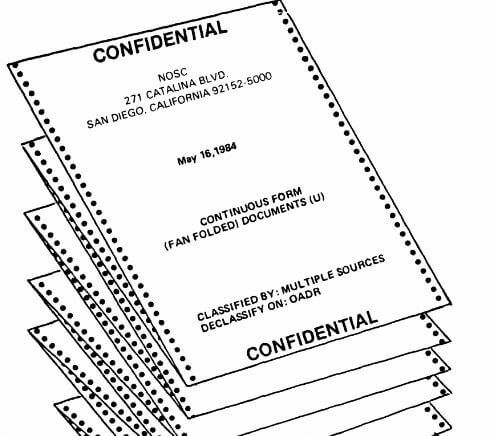Records management It is an essential function of companies, non-profit organizations, government agencies, social, medical, commercial agencies, financial institutions, schools, universities and all kinds of entities that generate information that needs to be maintained over a period of time definite. Individual households also need to practice good record keeping. Records management is also a systematic, organized, planned and controlled process for managing or monitoring the life cycle of records. A record can be a tangible paper object or it can be in digital or electronic form. The records can be kept in financial, medical, informational, formal documents, documents of office, payroll, government forms and emails among hundreds of other types of records.
Records management addresses all three phases of the record life cycle: Creating or receiving a record; The maintenance, safe storage, retrieval, or general use of a record; The provision of a record.
Advertisements
In this article you will find:
Creation of Records
The creation or receipt of records it is what creates the demand for records management. Whether it is a job application, an invoice or an inventory control report, once the record has been created, all other operations or management functions for that record have to be employees. One function of the records management process is to determine the flow of the record after it has been created or received. Who has to see the record? Where does the record go after everyone has seen or acted on the record (like a record of a payment on account)? Who is responsible for ensuring the secure storage of the record? All of these questions need well-communicated answers.
Registry mantenance
Record keeping involves performing operations to store the record. A number of considerations must be taken into account when store records, including the possibility that the record is available for retrieval by those who need to refer to the information or have access to it. The other side of making the record available is denoting who cannot access the record.
Advertisements
When the record is out of storage, it is vital to good records management to have a system in place. place to determine who has the record, where they have the record, and when they intend to return the Registration. Ensuring the proper return of the record is also an important part of the records management system.

Advertisements
Secure storage of records may include the storage of digital copies of each record off-site in another office or in a safe deposit box at the bank. Records should be stored in a cool, dry place to avoid damage to paper or electronic copies. Archiving processes are part of the maintenance phase of records management. Determining when a record is eligible to archive is part of records management. It is also part of this function to select where the logs are archived and how long the logs are archived. Some records such as historical records can be kept for life and sometimes beyond the company. For cities, states and municipalities, historical records may have to be stored indefinitely.
Records deletion
Delete records in the right time frame is critical. The removal of most records must be completed by shredding. Considerations for deletion include determining how long the record should be stored. The time frame for keeping records depends on the nature of the record. Some storage records are dictated by government regulations, such as tax records, some of the banks for loan management and some for the legal guidelines, such as papers of incorporation.
Advertisements
It also includes determining how records are disposed of, such as by intra-company shredding or hiring From an external company to fragmentation and the development of a disposal tracking system can also be helpful. Listing records by category where they were removed, how they were removed, and where can be beneficial for long-term records management. Additionally, implementing an approval mechanism for record deletion can help ensure that everyone who needs to know knows before records are destroyed.
Other Considerations for Records Management
Several other options for adapting to a records management system include documenting and communicating the policies and procedures associated with records management, developing and implement control mechanisms and procedures for each phase of records management and keep records management systems simple and easy to communicate and easy to use. manage.
Advertisements
Resources for Managing Learning Records
There are hundreds of resources available to learn effective record management. Technical schools, colleges and universities, online training, and reference books abound at the local bookstore or university bookstore that can assist with the development of an effective and respectful records management system of the law. Also always check with local, state and federal regulations.


